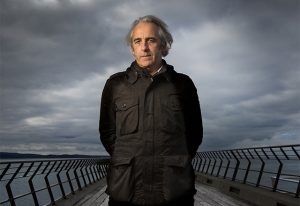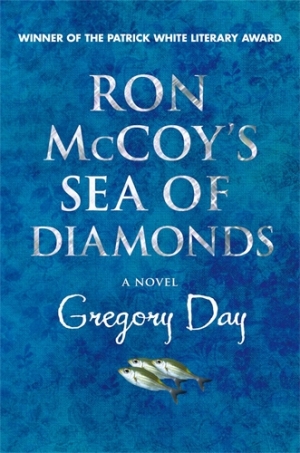Gregory Day
Despite the detailed excavatory art of the finest biographies, sometimes it takes the alchemical power of fiction to approximate the emotional geography of a single human and his or her milieu. Stephen Orr’s seventh novel, a compelling and at times distressing portrait of a twentieth-century Australian painter and his family ...
... (read more)To celebrate the best books of 2017 Australian Book Review invited nearly forty contributors to nominate their favourite titles. Contributors include Michelle de Kretser, Susan Wyndham, James Ley, Geordie Williamson, Jane Sullivan, Tom Griffiths, Mark Edele, and Brenda Niall.
... (read more)Gregory Day reviews 'The Best Australian Poems 2017' edited by Sarah Holland-Batt
When W.H. Auden took the cue for his poem ‘Musée des Beaux Arts’ from Brueghel’s Fall of Icarus, he did not presume the reader’s knowledge of the iconography of the painting but rather sprang open its central and universal theme, which touches all our lives: how ‘dreadful martyrdom must run its course’. It is easy to think our lurid times are perhaps ...
... (read more)Why do you write? Because I get enjoyment out of it, and so do other people.
... (read more)The missing novels: our critics nominate some overlooked classics
An official account of a naval battle off the coast of Crete on 22 May 1941 includes reference to a ‘friendly fire’ incident when ‘HMS Orion was … repeatedly hit by 40mm shots from HMS Dido, which, in the maelstrom, ended up shooting at her comrade’. A few days later, during the evacuation from Heraklion, the crippled HMS Imperial had ...
Georgie heard it too. On the very first morning of this story, though so much had gone beforehand. The usual warbling of the typical magpies, if anything so mysteriously complex as a magpie’s song can be called typical. There she’d lie, day after day, alongside Muir in their countless beds, in cramped corner flats and large creaking homesteads, in cold fibro shacks and bedsits baking for the lack of ventilation, listening to the warbling giving birth to the light upon its loom: the many coloured strands of light that, no matter where they were, began each ordinary day. Muir would hurrumph in bed – he was a cranky sleeper; he dreamt of his novels’ characters, he told her, was not to be disturbed, except for sex – his thick freckled shoulder would rise against her and she would sigh and listen, to the coming of the light, until it was eventually strong enough for her to muster the energy and get the kids ready for school. More often than not it was a new school.
... (read more)Jolley Prize 2011 (Winner): 'The Neighbour’s Beans' by Gregory Day
In the weeks and months after his Moira died he’d whittled off the callers, one by one, until even gentle Dave O’Donnell, his oldest friend, f ...
Cheryl Jorgensen reviews 'The Grand Hotel: A novel' by Gregory Day
According to the author’s note at the end of The Grand Hotel, this will probably be the last of his stories to be set in fictional Mangowak, a coastal town in south-western Victoria. The first, The Patron Saint of Eels (2005), won the 2006 Australian Literature Society Gold Medal. The second, Ron McCoy’s Sea of Diamonds (2007), was shortlisted for the 2008 New South Wales Premier’s Prize for Fiction.
... (read more)Nick Drayson reviews 'Ron McCoy's Sea of Diamonds' by Gregory Day
Some writers are wary of bookshops. It is not the bright lights or the sharp smell of all that new ink, increasingly mingled these days with the aroma of fresh coffee: it is just the sight of all those books – thousands of them. ‘Why am I doing this?’ they think. ‘Does the world really need yet another book? What’s the point of it all?’ But then they read a new novel – it might even be a best-seller or have won a major prize – and think, ‘No, it’s OK. I can do as well as that, and maybe if I try hard enough I can even do better.’ So they keep writing.
... (read more)





